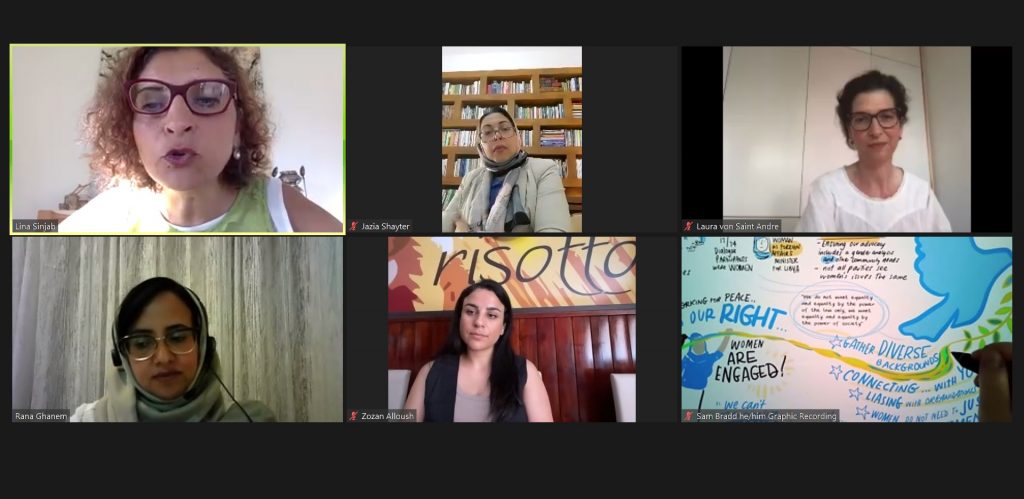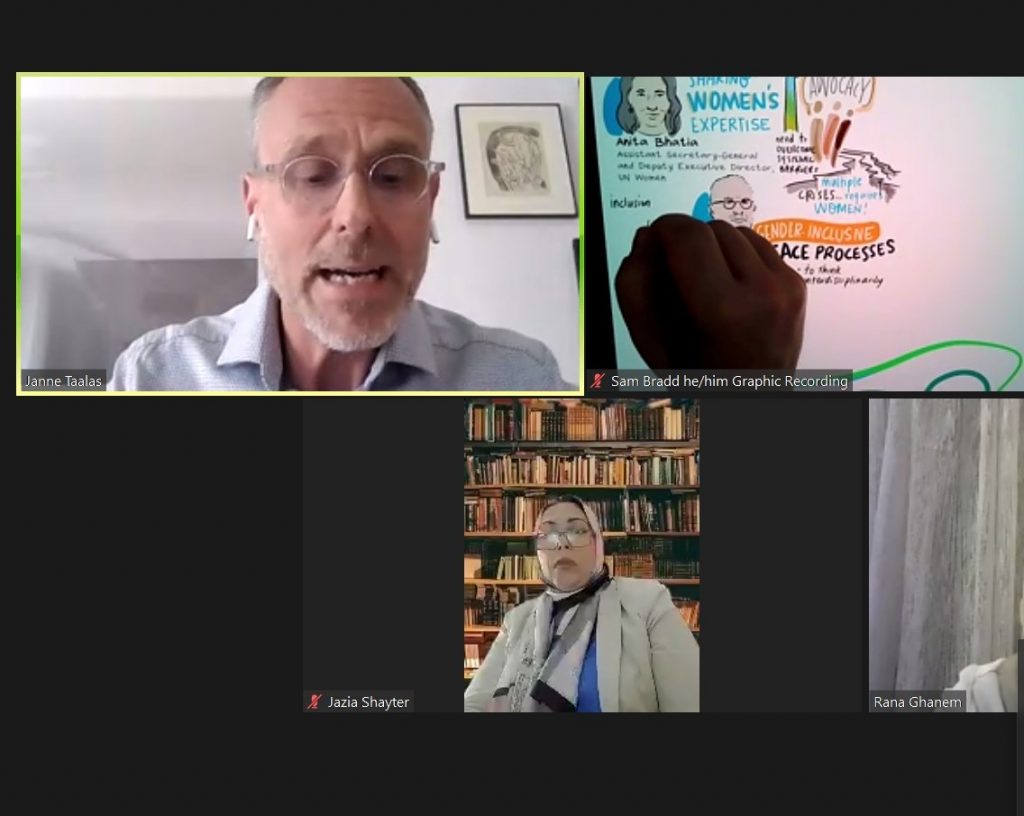What is the role of constituency building in advancing gender equality?
A high-level opening event launched a global conference on gender-inclusive peace processes. This conference, hosted by UN Women and CMI, gathers participants worldwide to share their experiences and discuss how building and leveraging constituencies can be used in achieving and fostering inclusive peace.

Moderator Lina Sinjab with Rana Ghanem, Zozan Alloush, Dr. Jazia Shayter and Laura von Saint Andre. Sam Bradd drew a sketch based on key points and take-aways emerged during the discussion.
From 7-27 July, UN Women and CMI are co-hosting a Global Convening titled “Gender-Inclusive Peace Processes: Strengthening Women’s Meaningful Participation through Constituency Building.”
During this time, participants worldwide will gather to share their experiences and discuss how building and leveraging constituencies can be used in achieving and fostering inclusive peace.
UN Women and CMI are hosting several workshops for the participants to discuss different topics regarding the strategies and practices in constituency building, inclusivity, and peace processes, ranging from digital methods to civil society activity.
A high-level opening event on July 7 launched the conference. Anita Bhatia, Deputy Executive Director of UN Women, and Dr. Janne Taalas, CMI’s Chief Executive Officer, gave the opening remarks at the event. “Women’s participation at the peace table strengthens peace,” said Deputy Executive Director Bhatia. Janne Taalas echoed this, stating that gender-equal peace processes pave the way for more just and equitable societies and durable peace.
“CMI works every day to translate the Women, Peace and Security Agenda into tangible action in conflict-affected countries and peace processes.”
The panel discussion was moderated by BBC Middle East journalist Lina Sinjab. She invited Rana Ghanem, Assistant Secretary-General of Nasserist Party, Yemen; Zozan Alloush, Member of Women’s Advisory Board to the UN Special Envoy to Syria; and Legal Academician and Human Rights Activist Dr. Jazia Shayter, Former member of the Libyan Political Dialogue Forum, to discuss the dilemmas, successes, and lessons learned from constituency building in peace processes in Yemen, Libya and Syria.

CMI’s CEO Janne Taalas giving opening remarks of the event.
“Women should not have to justify why they should be included in peace processes”
Governments and international organisations need to promote gender issues and women’s participation in peace processes. “When special envoys or foreign governments push the gender issue and inclusion, it is heard. We need this kind of pressure”, said Dr. Jazia Shayter.
“Women should not have to justify why they need to be included in peace processes,” added Zozan Alloush.
Rana Ghanem highlighted the importance of being transparent to one’s supporters to inform them on what is happening in a peace process or negotiations. The other panellists agreed and underlined transparent communication as one of the critical cornerstones of building and liaising with constituencies.
Laura von Saint Andre from Germany’s Federal Ministry on Economic Cooperation and Development ended the event by summing up the discussion. Her three key takeaways from the event were:
- Participation needs to go beyond representation.
- Communication with constituencies is essential.
- There needs to be international and social pressure to promote gender issues.
As Zozan Alloush said during the panel discussion: “Women are part of the crisis, so they should be part of the solution too.”